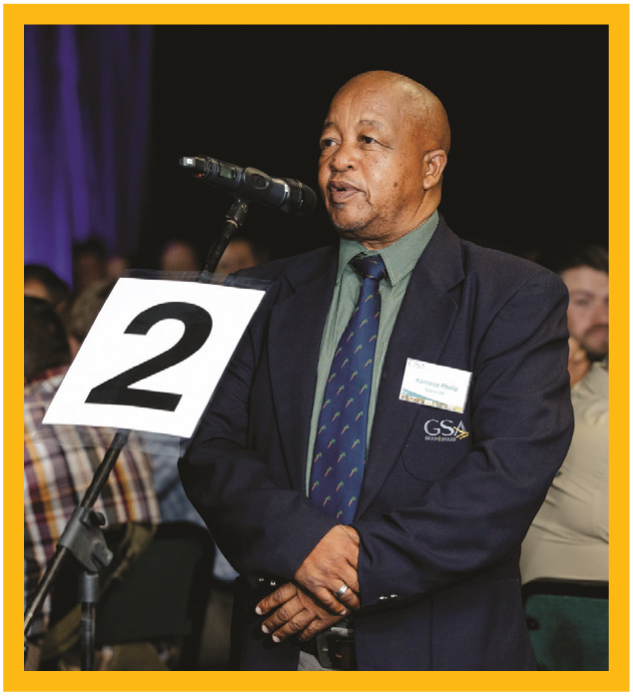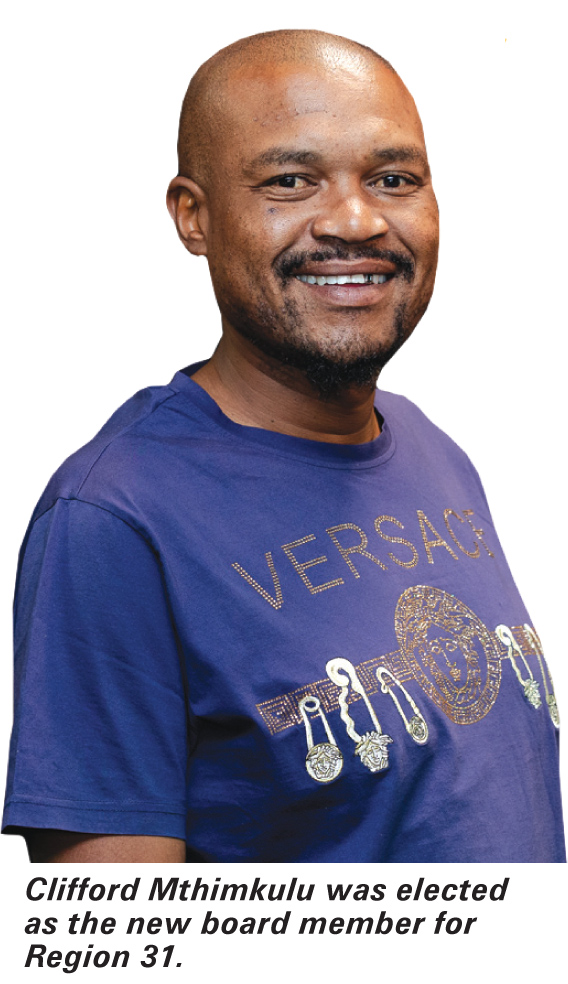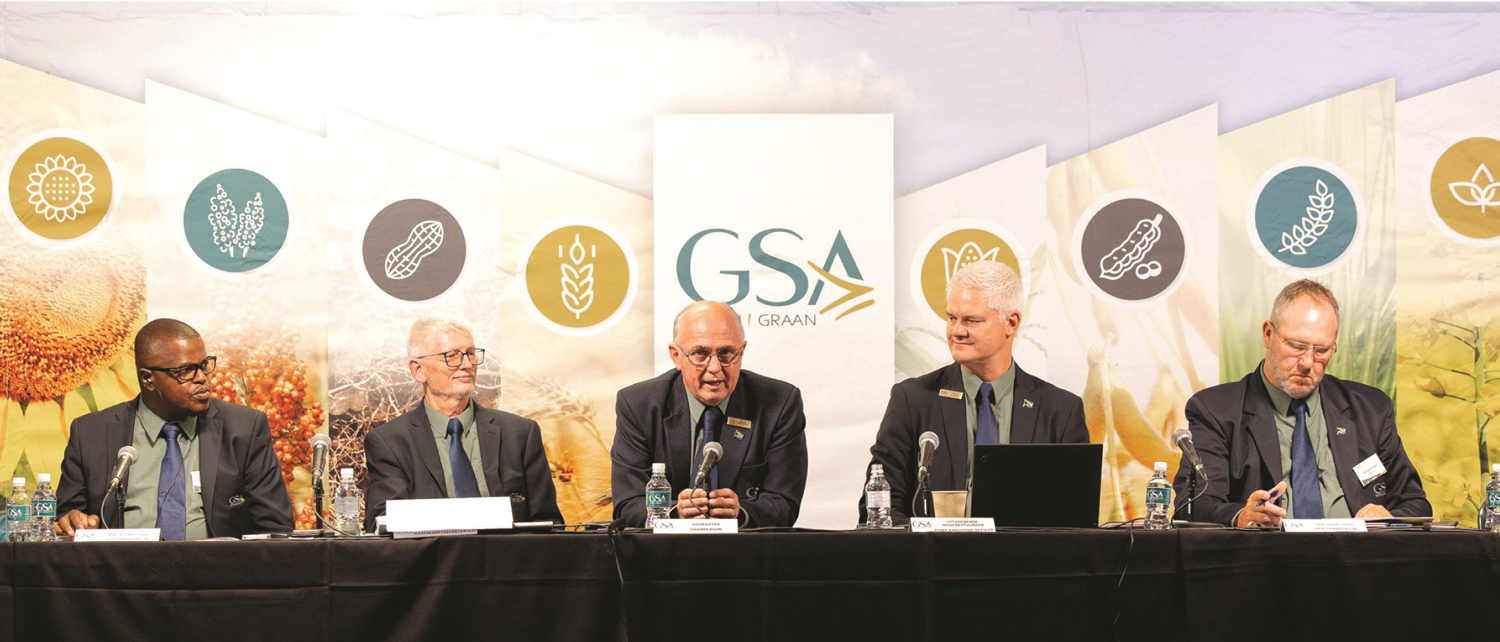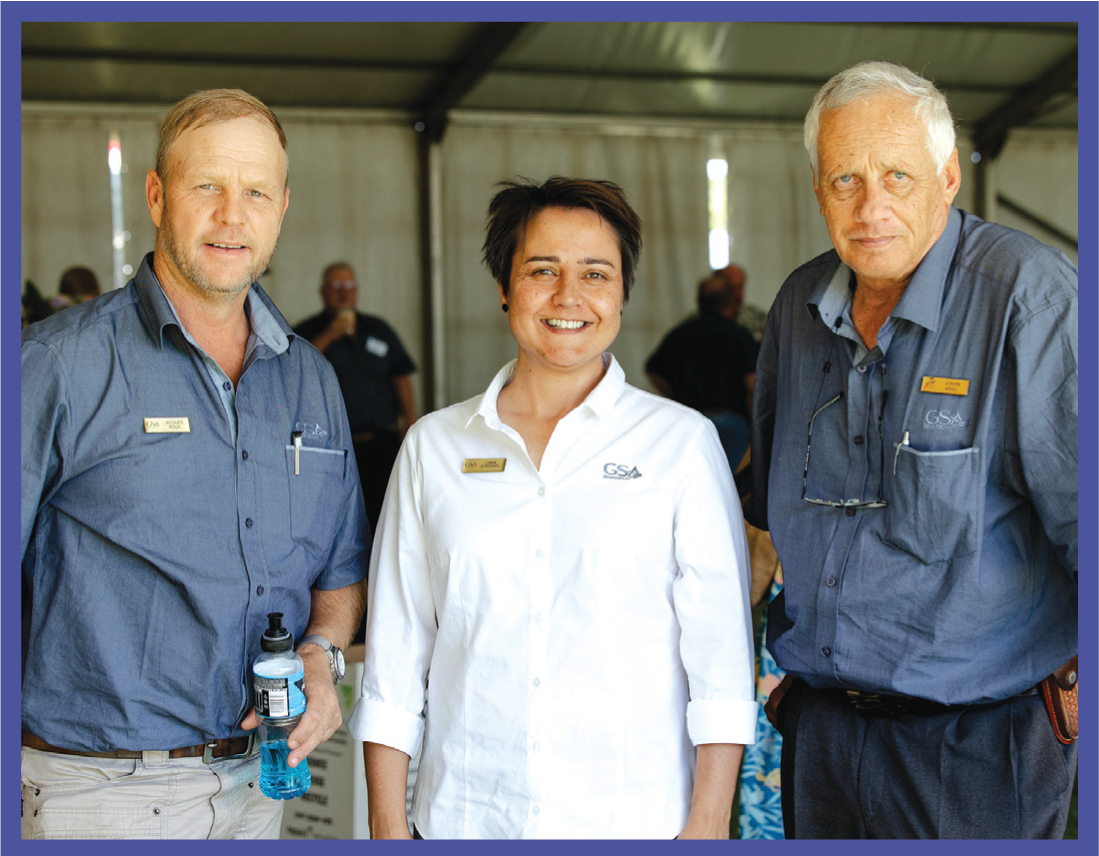June 2024

Grain SA’s 2024 congress asked the following question on 13 and 14 March: ‘what keep farmers up at night?’ and the overall focus was that farmers can make plans. Congress served as an excellent platform for Grain SA members, stakeholders, policy makers, researchers and experts in the industry to come together and discuss relevant issues affecting the grain industry.
Over the past year, the South African grain and oilseed industry has been characterised by a combination of issues and breakthroughs. This year’s theme aimed to equip farmers on how to manage these difficult conditions – whether it is seasonal challenges, climate-related or personal.
The agenda was presented in three main sessions. It kicked off with a presentation by David Hughes, vice-president of the International Farm Management Association, who gave Congress attendees a glimpse into the challenges that Argentine grain farmers must face.

Ramoso Pholo, Grain SA board member for Region 28,was chosen as the best speaker ‘from the floor’ by members of the media. His plea for help to farmers in his area who are suffering heavily from the drought – and this after they were ravaged by severe floods in the previous season – struck a deep chord.
Panel discussion topics were carefully selected to empower and assist farmers in their decision-making amidst challenges and to ponder on critical issues shaping the grain industry in South Africa. The panel discussions asked fellow producers how they maintain a sustainable production environment.
 During the election, Grain SA chairperson, Derek Mathews, was re-elected unopposed. He will be supported by re-elected chairpersons, Richard Krige and Jeremia Mathebula. This team is ready for the task ahead, of which the most important is to help ensure economic sustainability for grain farmers in the country.
During the election, Grain SA chairperson, Derek Mathews, was re-elected unopposed. He will be supported by re-elected chairpersons, Richard Krige and Jeremia Mathebula. This team is ready for the task ahead, of which the most important is to help ensure economic sustainability for grain farmers in the country.
BREAKAWAY SESSIONS
Several important industry matters were discussed during the breakaway sessions. Obstacles in the grain industry were thoroughly examined. Here are some of the points that were discussed:
Maize
Sunflower
THE NEXT SEASON
Grain SA ensured Congress attendees that the organisation will continue working towards what is important to its members, namely to focus on economically successful and sustainable grain production. Grain SA as an industry organisation commits to tackle the points mentioned during the Congress, grow the organisation through them and convey an encouraging but purposeful message of hope to all farmers.

The use of electronic voting processes paved the way for constructive feedback after each session, creating the opportunity to gather important input and opinions from members.

Leading the Congress: Jeremia Mathebula (vice-chairperson), Nico Vermaak (company secretary), Derek Mathews (chairperson), Dr Tobias Doyer (CEO) and Richard Krige (vice-chairperson).

Friends of Pula Imvula: Lehlohonolo Bakwa (communications intern), who is part of Pula’s editorial team, and Phumzile Ngcobo, assistant regional manager.

Some of the friendly faces of Phahama Grain Phakama’s Farmer Development Team: Jacques Roux (regional development manager: Eastern Free State), Liana Stroebel (operations and training manager) and Johan Kriel (regional development manager: Western Free State).
Publication: June 2024
Section: Pula/Imvula
Author: EDITORIAL TEAM